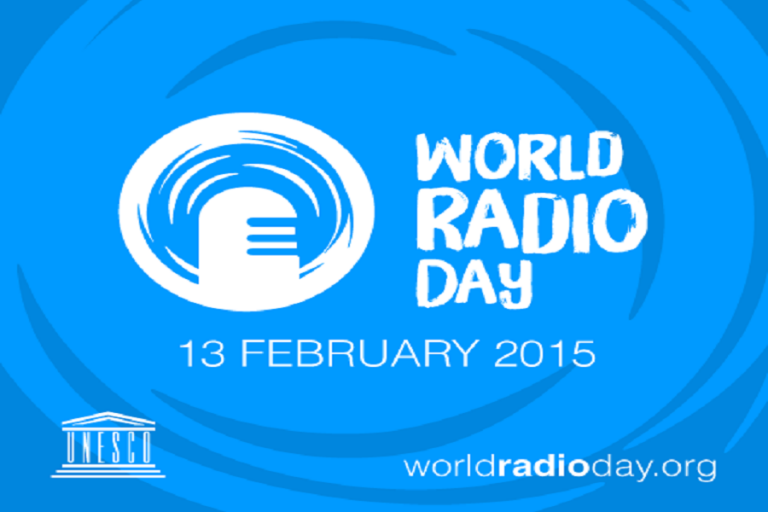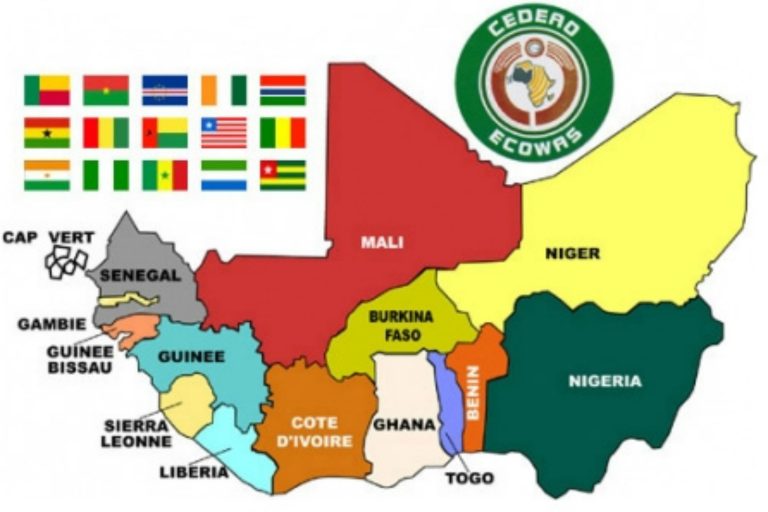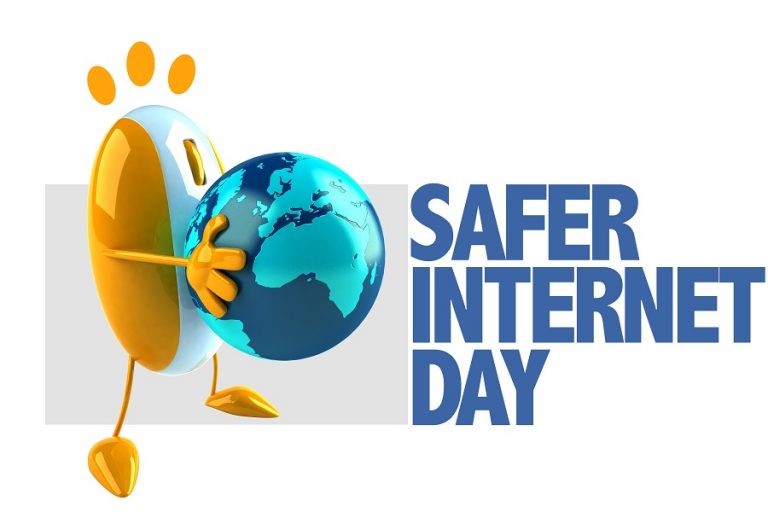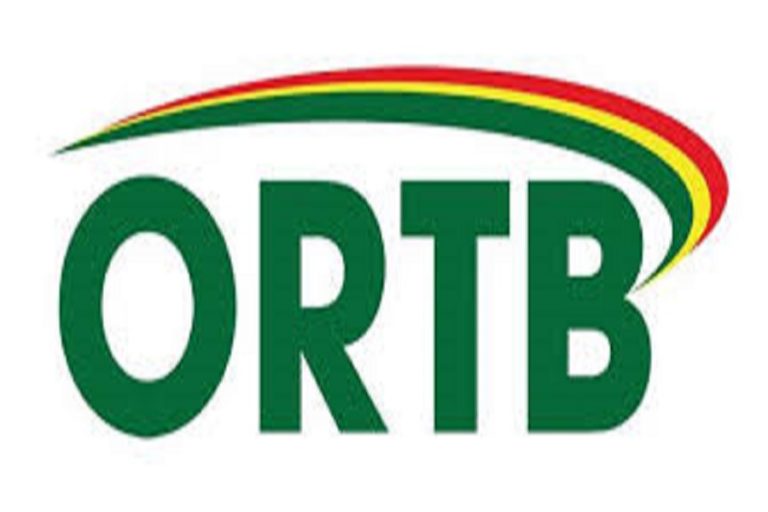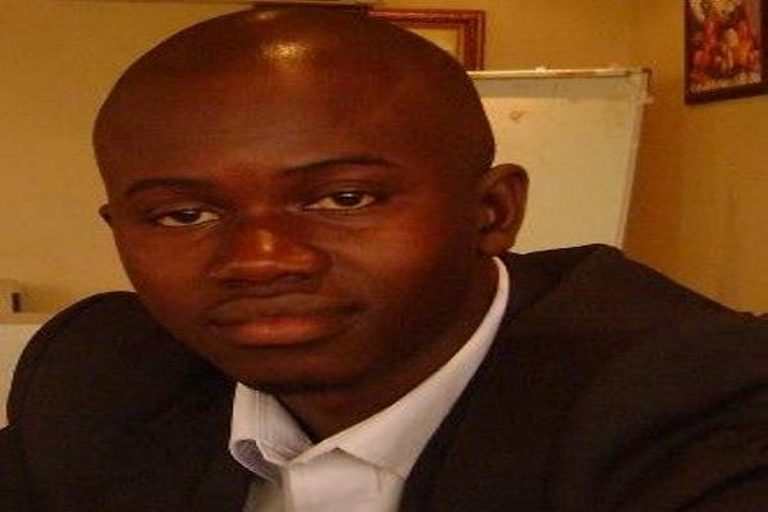This year, World Radio day focuses on radio and the youth. As an organisation that has the development of both radio and the youth at heart, the MFWA compiled the views of some young people on their experience with radio and how relevant it is in their lives. Here are some views shared by young people on the relevance of radio:
Sheriff Junior, Senegal – Freelance Writer at The Guardian, Foreign Correspondent at RFI English Service
 Thanks to radio, I’m current when it comes to news and global information. It has also enabled me to be more aware of the cultures, lifestyles/ways of lives of other people in other parts of the world. Radio (through debates, free speeches etc.) has empowered me today to be in a position to empower other people through my work as broadcaster. I listen to radio principally to get news updates from around the world. I also listen to radio for music. And I prefer radio to newspaper or TV because I can listen to the radio while doing other things simultaneously. I don’t have to watch or be physically attentive. Radio is magical. Radio is the biggest form of communication in every part of the world and everybody relates to radio. We’ve seen more conflicts, intolerance and the need for wider sensitization in many parts of the globe. The more these increase, the more we need radio. Most youth today have cell phones and often times their phones are not sophisticated with mp3 players etc. However what most of them have on their phones is radio. So sober radio programmes will certainly help develop the youth. These include programmes that empower them.
Thanks to radio, I’m current when it comes to news and global information. It has also enabled me to be more aware of the cultures, lifestyles/ways of lives of other people in other parts of the world. Radio (through debates, free speeches etc.) has empowered me today to be in a position to empower other people through my work as broadcaster. I listen to radio principally to get news updates from around the world. I also listen to radio for music. And I prefer radio to newspaper or TV because I can listen to the radio while doing other things simultaneously. I don’t have to watch or be physically attentive. Radio is magical. Radio is the biggest form of communication in every part of the world and everybody relates to radio. We’ve seen more conflicts, intolerance and the need for wider sensitization in many parts of the globe. The more these increase, the more we need radio. Most youth today have cell phones and often times their phones are not sophisticated with mp3 players etc. However what most of them have on their phones is radio. So sober radio programmes will certainly help develop the youth. These include programmes that empower them.
Alda Gloria Irakoze, Rwanda –Representative in Rwanda National Youth Council
 I am a peace builder and initiate different activities to contribute to the development of Africa and change lives. I listen to radio to get information and stay updated. Radio has changed lives positively across the world and has reached out to people with news of progress of their country socially, politically and economically.As a Rwandan however, once between 1960s up to 1994 it affected us negatively where it was the most conspicuous tool used expand the propaganda of hatred leading to the Rwandan genocide.
I am a peace builder and initiate different activities to contribute to the development of Africa and change lives. I listen to radio to get information and stay updated. Radio has changed lives positively across the world and has reached out to people with news of progress of their country socially, politically and economically.As a Rwandan however, once between 1960s up to 1994 it affected us negatively where it was the most conspicuous tool used expand the propaganda of hatred leading to the Rwandan genocide.
Radio can help to develop the youth if more innovative programmes with the youth in focus are aired. It should also be used as a medium to build and sustain peace. Radio can also serve as a guide and feed the youth with the latest trends that can make them successful in whatever field of work they find themselves in.
Rose Adjei, Ghana
 A lot of young people are involved in radio right now; newscasters, Djs, talk show hosts etc. It is therefore a source of income to the youth as well as offering us a platform for our voices to be heard. . As a Ghanaian studying abroad, radio is a great way for me to follow up on current happenings within the country. I get to hear accounts from the horses own mouth without having to rely on international news agencies. Let’s not forget about people living in rural areas who have no access to the Internet or sometimes electricity, radio is their only source of information. If there is a public service announcement targeting people in rural areas, radio could be a good platform to use Even though social media is taking the world by storm, traditional media such as radio is still very important. Most radio stations interact with listeners using social media. This combination is very powerful as it gives people the chance to air their views on important subjects. The Internet is a very important factor and I will advise that more radio stations in Ghana take advantage of this to reach a wider audience.
A lot of young people are involved in radio right now; newscasters, Djs, talk show hosts etc. It is therefore a source of income to the youth as well as offering us a platform for our voices to be heard. . As a Ghanaian studying abroad, radio is a great way for me to follow up on current happenings within the country. I get to hear accounts from the horses own mouth without having to rely on international news agencies. Let’s not forget about people living in rural areas who have no access to the Internet or sometimes electricity, radio is their only source of information. If there is a public service announcement targeting people in rural areas, radio could be a good platform to use Even though social media is taking the world by storm, traditional media such as radio is still very important. Most radio stations interact with listeners using social media. This combination is very powerful as it gives people the chance to air their views on important subjects. The Internet is a very important factor and I will advise that more radio stations in Ghana take advantage of this to reach a wider audience.
Mukasa – Uganda
According to Uganda Communications Commission, Uganda has over 122 FM, 7 AM and 2 shortwave radio stations with programs in locally suitable languages, I consider this good coverage. I also commend their coverage of day to day affairs, information sharing and promotion of local music. Although a number of them have tabled programs to increase youth participation, I still feel this is lacking. A lot of air time is wasted on programs that promote vices and solving love problems. I have come across many opportunities through radio including prizes from writing competitions which in turn increased my network by introducing me to young writers and already established writers. I also listen to radio to learn French and keep myself informed of current affairs. Radio is accessed by youths of different economic backgrounds. It is therefore the best medium to reach and inspire underprivileged youth to dream bigger and expose them to a world beyond that they have been raised in and inspire them to reach their highest potential.
Atta Poku, Ghana – Sports Journalist
 Radio has positively helped me to touch lives as a broadcaster, provide information and knowledge to my listeners and has created for me a huge social capital. Radio by offering employment opportunities and consistent training provides two avenues to constantly develop the youth. We need radio more than ever because it has proven to be the largest and most widely circulated means of transferring information. In a world where many are still uneducated we need to reach everyone as various languages could be spoken to transmit information through radio. Radio has also proven to be faster than any other media form. I listen to radio because it gets me informed and constantly set me up to crave for more knowledge and informed opinions on all aspects of life.
Radio has positively helped me to touch lives as a broadcaster, provide information and knowledge to my listeners and has created for me a huge social capital. Radio by offering employment opportunities and consistent training provides two avenues to constantly develop the youth. We need radio more than ever because it has proven to be the largest and most widely circulated means of transferring information. In a world where many are still uneducated we need to reach everyone as various languages could be spoken to transmit information through radio. Radio has also proven to be faster than any other media form. I listen to radio because it gets me informed and constantly set me up to crave for more knowledge and informed opinions on all aspects of life.
There are many emerging media forms but especially in Africa I believe radio is the way to go. A lot of people could be reached through radio with or without formal education and electricity.
Omar N. Cham. Gambia – Student, Istanbul University, Turkey.
Radio has affected my life positively for the simple fact that I am virtually aware of all events in the world ranging from politics, economic, social etc. As far as the negative side of it is concerned, I think I have been addicted to it and it consumes a significant amount of my time. Radio has great potentials in developing the youth. It can serve as a platform for the youth get their voices hear and engage governments. Moreover, radio can serve as source of worthwhile information for the youth who want to develop their skills, acquire higher education etc. Radio stations should however seek to expand their scope of broadcasting. Social problems such as unemployment, poverty, marginalization, discrimination, diseases etc should occupy central stage in radio talk shows.
Oche Itodo. Nigeria , Microbiologist
 In Nigeria, the radio is very important to us. It reaches the far ends of the country land. It is very important because it cuts through socioeconomic strata. It is a tool that has been said to be able to bridge the gap between the haves and the have-nots of my country. I love the power of the radio. I do not listen to radio often but when I do I listen, it is because I do so to feel connected to the society that I find myself in. I discovered that listening to radio is a good way to find your way around the nuances of a culture; even my own culture. But it depends on what programs are being aired Listening to radio has helped me learn a lot about diverse subjects such as politics, culture, and the society in general. I have learnt a lot of things from listening to radio such as French by listening to radio France international (RFI) for example. It is a good way to use your time effectively even while doing other things. It is a passive way of learning things but a very important means. I don’t really have any negative experiences from listening to the radio.
In Nigeria, the radio is very important to us. It reaches the far ends of the country land. It is very important because it cuts through socioeconomic strata. It is a tool that has been said to be able to bridge the gap between the haves and the have-nots of my country. I love the power of the radio. I do not listen to radio often but when I do I listen, it is because I do so to feel connected to the society that I find myself in. I discovered that listening to radio is a good way to find your way around the nuances of a culture; even my own culture. But it depends on what programs are being aired Listening to radio has helped me learn a lot about diverse subjects such as politics, culture, and the society in general. I have learnt a lot of things from listening to radio such as French by listening to radio France international (RFI) for example. It is a good way to use your time effectively even while doing other things. It is a passive way of learning things but a very important means. I don’t really have any negative experiences from listening to the radio.
Today, everyone is on the internet. It seems that we have little time for classic things like listening to the radio but I feel that it is still very relevant in our world today. The radio has a wide coverage especially in areas where telecommunications have not yet brushed over. The radio remains an indispensable means of communication from whichever angle you look at it from. For example while doing field work where one is cut off from internet, television and other means of communication. It is a good tool in the hands of responsible governments to ensure that everyone is carried along in the boat of progress.
In Nigeria for example, my friend runs a radio program called Amplified radio in Abuja every Saturday which is about democracy, good governance and about free and fair elections which is basically a youth targeted program. It is aired all the time with a very wide reach. Through this medium, he has been able to reach the far corners of the country and has used it as an opportunity to advocate for positive social change. I think this example alone shows clearly how far radio programs can be used in a positive light.
Mohammed Kamara, Sierra Leone.
During the Ebola epidemic in my country, the radio played an important role in disseminating information to people about the causes, symptoms and preventive measures and how to fight the disease and this information reached out to almost everyone because because the language of instruction was Krio which everybody speaks in Sierra Leone.
The President also used radio to reach out to and console families who were affected adversely by the disease. Radio was also used to give information on measure being taken by the government to control the disease.
The radio has also educated me to know about my basic rights and how to use them and their limitations.

